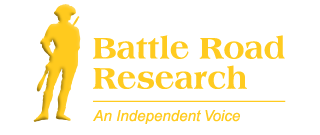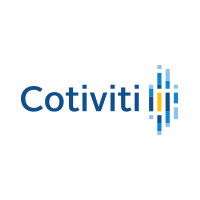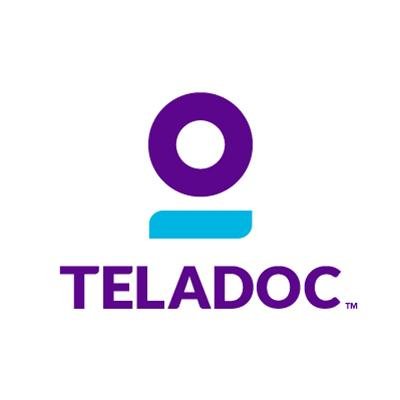Category: independent software stock research
Cotiviti Holdings: Striving for Payment Accuracy
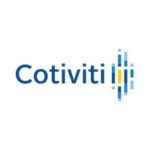 Cotiviti Holdings (NYSE: COTV), based in Atlanta, Georgia, is a recent addition to our Battle Road IPO Review Business Services sector coverage. The company provides payment accuracy solutions in the form of analytics and services to the healthcare and retail industries. For 2016, Consensus estimates call for revenue of $614 million, followed by a 10 percent increase in 2017 to $676 million. EPS is expected to be $1.30 this year, followed by $1.36 in 2017, an increase of just five percent.
Cotiviti Holdings (NYSE: COTV), based in Atlanta, Georgia, is a recent addition to our Battle Road IPO Review Business Services sector coverage. The company provides payment accuracy solutions in the form of analytics and services to the healthcare and retail industries. For 2016, Consensus estimates call for revenue of $614 million, followed by a 10 percent increase in 2017 to $676 million. EPS is expected to be $1.30 this year, followed by $1.36 in 2017, an increase of just five percent.
Cotiviti is the result of the May 2014 merger between Connolly Superholdings, a provider of post-payment accuracy solutions for the healthcare and retail sectors, and iHealth Technologies, a provider of pre-payment accuracy solutions for the healthcare sector. The leveraged merger was managed by Advent International, which now owns roughly 65 percent of the outstanding shares.
COTV priced its 12.5 million share IPO at $19 per share on the NYSE on May 25, 2016. All proceeds from the IPO went to the company, thus raising roughly $225 million, net of underwriter and other fees. The IPO was led by Goldman Sachs, J.P. Morgan, Barclays, Citigroup, Credit Suisse, Morgan Stanley, RBC Capital Markets, SunTrust Robinson Humphrey, R.W. Baird, and William Blair. At a recent share price of $33, COTV’s market cap is roughly $3 billion.
Cotiviti’s solutions help healthcare providers identify claim discrepancies throughout the claims process, from pre to post payment. Also referred to as recovery auditing, solutions from Cotiviti help government agencies and companies recover erroneous payments made to suppliers and customers. The US healthcare sector accounts for roughly 85 percent of the company’s revenue, and eight of the top 10 US healthcare providers are customers in some shape or form. Over 40 healthcare organizations utilize the company’s services, including Medicare and Medicaid. The remaining 10-15 percent of sales is derived primarily from the retail sector. Cotiviti counts eight of the top ten US retailers as customers. Cotiviti claims that commercial healthcare clients realized over $2.5 billion in savings utilizing its solutions in 2015, up from $2 billion in 2014.
Cotiviti has indicated that its ten largest healthcare customers on average have been customers of the company for ten years. That said, the company has significant customer concentration, as its top three customers accounted for 32 percent of sales in 2015, and its top ten customers comprised 59 percent of sales in 2015. Prior to its IPO Cotiviti had a net debt position of nearly $1 billion. Thus, it is not surprising that the company recently used proceeds from its IPO as well as cash from operations to pay down $238 million of its second lien credit facility. To learn more about where COTV trades in relation to its Business Services peers within our Battle Road IPO Review, please contact Battle Road Research.
Teladoc (NYSE: TDOC)
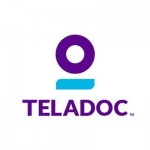 Teladoc (NYSE: TDOC), based in Dallas, Texas, is a recent addition to our Battle Road IPO Review Business Services sector coverage. Founded in 2002, Teladoc provides healthcare services, which may be accessed via the phone, or through the web via an internet connected device. Consensus estimates call for revenue of $75 million and a Loss per Share of $1.58 in 2015, followed by revenue of $118 million and a Loss per Share of $1.02 in 2016.
Teladoc (NYSE: TDOC), based in Dallas, Texas, is a recent addition to our Battle Road IPO Review Business Services sector coverage. Founded in 2002, Teladoc provides healthcare services, which may be accessed via the phone, or through the web via an internet connected device. Consensus estimates call for revenue of $75 million and a Loss per Share of $1.58 in 2015, followed by revenue of $118 million and a Loss per Share of $1.02 in 2016.
Teladoc priced its 8.3 million share IPO at $19 per share on the NASDAQ on June 30, 2015 for first trade the following day. All shares were offered by the company. Subsequently the underwriters exercised their over-allotment of 1.24 million shares for a total offering of 9.5 million shares, enabling the company to raise about $170 million. The deal was led by J.P. Morgan Securities, Deutsche Bank Securities, William Blair, Wells Fargo Securities, and SunTrust Robinson Humphrey. At a recent share price of $21, Teladoc’s market cap is roughly $800 million.
Teladoc is one of a number of growing healthcare services providers catering to the on-the-go professional, as well as those that wish to avoid fees and expenses incurred by visiting a doctor. Teladoc members pay a $40 fee for a “virtual visit” with a physician or licensed healthcare provider. The visit may be a video collaboration, telephone consultation, or email query. The fee is paid directly by the member or through their healthcare service provider.
The company provides phone based counseling on a range of conditions, disorders, and maladies, including anxiety and smoking cessation treatments, as well as diagnoses of skin conditions and acute infections. Teladoc connects 12 million subscribers to over 1,500 board-certified doctors and health professionals, and claims a median response time of 10 minutes to a user query. During the second quarter of 2015, the company recorded 125,322 patient “visits” versus 61,379 the year before. Teladoc has grown both organically and through acquisitions, including four executed in the last two years. Teladoc’s top ten customers accounted for 28 percent of revenue in 2014, down from 41 percent in 2013. Through the first six months of 2015, the top ten customers accounted for less than 25 percent of revenue.
A number of telemedicine services providers have cropped up in recent years, including privately-held MDLive, Doctor on Demand, and American Well. The segment has been gaining recognition and endorsement from several leading healthcare services providers, including Anthem, Aetna, Cigna, UnitedHealth Group, and others. CVS is currently working with Teladoc, as well as Doctor on Demand and American Well.
Despite its alluring value proposition, Teladoc’s lack of profitability is disconcerting. During the third quarter of 2015, Teladoc recorded sales growth of 83 percent, reaching $20 million, with subscriptions and access fees accounting for 85 percent of sales, and visit fees the remaining 15 percent. The company’s operating loss widened from $3.9 million a year ago to $12.6 million in the most recent period, a disconcerting sign that the company is failing to make progress toward profitability.
